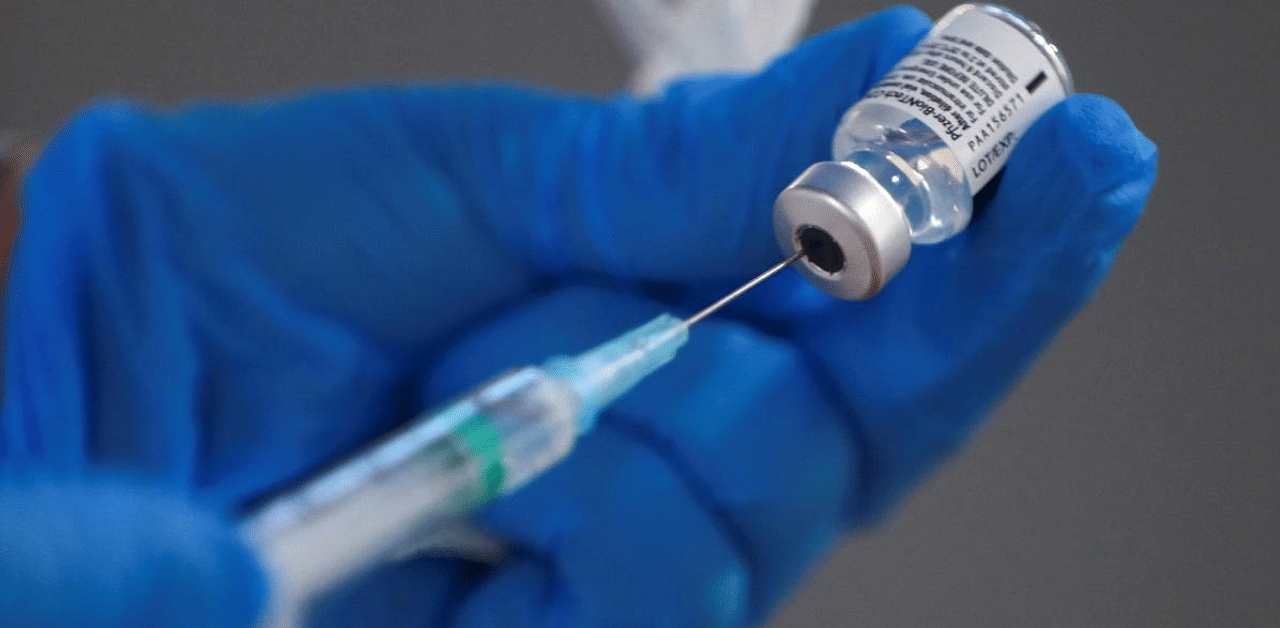
Health chiefs in the UK on Thursday began what they have described as a world-first clinical trial of patients who will receive different Covid-19 vaccines for their first or second dose, to detect its impact on immunity against coronavirus.
The study, backed by 7 million pound of government funding, will determine the effects of using different vaccines for the first and second dose – for example, using Oxford University/AstraZeneca’s vaccine for the first dose, followed by Pfizer/BioNTech’s vaccine for the second.
It is being run by the National Immunisation Schedule Evaluation Consortium (NISEC) across eight National Institute for Health Research (NIHR) supported sites and also gather immunological evidence on different intervals between the first and second dose for a mixed-vaccine regimen against control groups when the same vaccine is used for both doses.
"This is a hugely important clinical trial that will provide us with more vital evidence on the safety of these vaccines when used in different ways," said Nadhim Zahawi, Minister for Covid-19 Vaccine Deployment.
“Nothing will be approved for use more widely than the study, or as part of our vaccine deployment programme, until researchers and the regulator are absolutely confident the approach is safe and effective. This is another great step forward for British science, expertise and innovation, backed by government funding -- and I look forward to seeing what it produces,” he said.
The 13-month study will monitor the impact of the different dosing regimens on patients’ immune responses, which have the potential to be higher or lower than from the same dose regimen. Initial findings are expected to be released later in the year.
“Given the inevitable challenges of immunising large numbers of the population against Covid-19 and potential global supply constraints, there are definite advantages to having data that could support a more flexible immunisation programme, if needed and if approved by the medicines regulator,” said Professor Jonathan Van-Tam, England’s Deputy Chief Medical Officer and Senior Responsible Officer for the study.
“It is also even possible that by combining vaccines, the immune response could be enhanced giving even higher antibody levels that last longer; unless this is evaluated in a clinical trial we just won’t know. This study will give us greater insight into how we can use vaccines to stay on top of this nasty disease,” he said.
The study has received ethics approval from the Research Ethics Committee, as well as approval from the Medicines and Healthcare products Regulatory Agency (MHRA).
Over 800 patients are expected to take part in the study, referred to as the Covid-19 Heterologous Prime Boost study or ‘Com-Cov’, across eight different sites across England -- including in London, Birmingham and Liverpool.
“If we do show that these vaccines can be used interchangeably in the same schedule this will greatly increase the flexibility of vaccine delivery, and could provide clues as to how to increase the breadth of protection against new virus strains,” said Chief Investigator Matthew Snape, Associate Professor in Paediatrics and Vaccinology at the University of Oxford.
Should the study show promising results, then the UK government says it could consider reviewing the vaccine regimen approach if needed, once proven to be safe and recommended by the Joint Committee on Vaccination and Immunisation (JCVI).
"We need people from all backgrounds to take part in this trial, so that we can ensure we have vaccine options suitable for all. Signing up to volunteer for vaccine studies is quick and easy via the NHS Vaccine Research Registry,” said Professor Andrew Ustianowski, National Clinical Lead for the NIHR Covid Vaccine Research Programme.
Meanwhile, the Department of Health and Social Care (DHSC) said a same-dose regimen is currently implemented for the UK-wide Covid-19 vaccination programme, and there are no current plans for this to change.
Anyone who has received either the Pfizer/BioNTech or Oxford/AstraZeneca vaccination as part of the UK-wide delivery plan will not be affected by this study. They will receive their second dose from the same source and over the same 12-week interval.